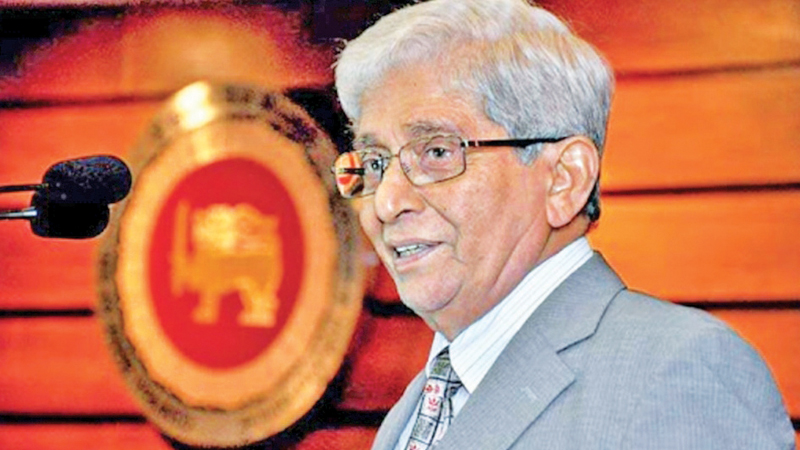The Average Weighted Lending rate has hit a historical low due to the policy by the Central Bank. Central Bank Governor Prof. W D Lakshman assuring investors that a low rate regime would continue along with other policies that incentivise investment in the economy.
Prof Lakshman said, “Interest rates are at historic lows and the policy is to maintain that regime. The objective of the economy is to sustain investment. In Sri Lanka, we have a long history of high-interest rates. There was at that time a strong argument against low-interest rates. Those were from those agencies that came to advise Sri Lanka for example the IMF and most economic textbooks.”
Prof.Lakshman was speaking to the American Chamber of Commerce on January 15 in a discussion held virtually.
“The criticism at the time was that low-interest rates lead to shallow finances. The recommendations of financial deepening lead to interest rates going to very high levels. Treasury bill rates went to 18-20 percent. The upper margin on lending went up to high as 30%. Part of the reason was high inflation at the time,” he said. Since taking over as governor interest rates have drastically reduced. Comparing January 2018 with January 2021, Prof. Lakshman noted that; Standing Deposit Facility rate has gone down from 8% to 4.5%; Standing Lending Facility went from 9% to 5.5%; The Average Weighted All Money rate from 8.5% to 4.4%; Average Weighted Lending Rate from 14% to 10.55%. He said, “The objectives of this policy is to promote investment and entrepreneurship. There are signs that low-interest rates policy is providing results in this direction.” The government has saved Rs 200 billion in interest rate costs in 2020 over 2019 due to lower rates. This represents a saving of about 3%. The governor noted the transfer of wealth that low rates provide and called on for fixes. He said, “We however adversely impacted the deposit holdings. The low-interest-rate regime helps the investors and the economy, there are the deposit holders who are hurt further on.
There have to be other institutional mechanisms to take care of these people.” A new banking act, amendments to the finance business act, and modern regulatory practices are to be implemented over the medium term. The Central Bank will continue with the consolidation of the Non-Banking Financial sector.
The Central Bank has been working on financial literacy. He said, “Much remains to be achieved. The faster the achievement of these objectives will help contribute to financial stability.” In relation to countering the downturn brought about by lockdown, he said, “Due to actions of the Central Bank there was a large amount of liquidity in the market which could have been used to create loans in the market.”
The governor noted that relationships between interest rates and other variables in the economy do not always have the expected outcome.


